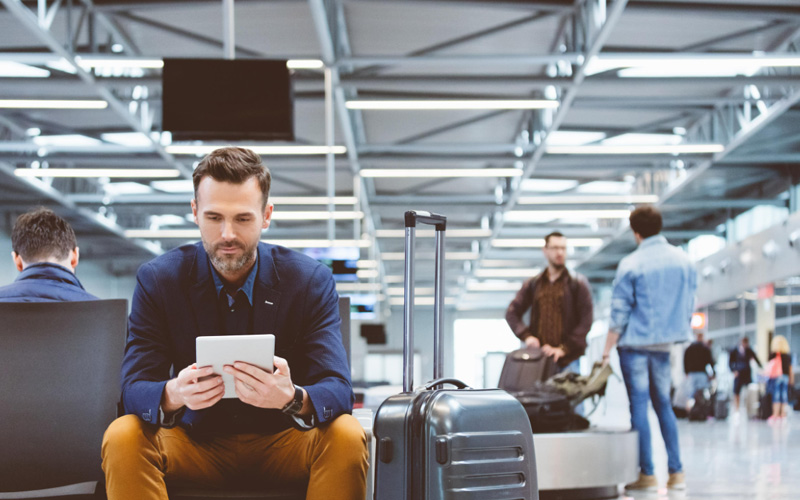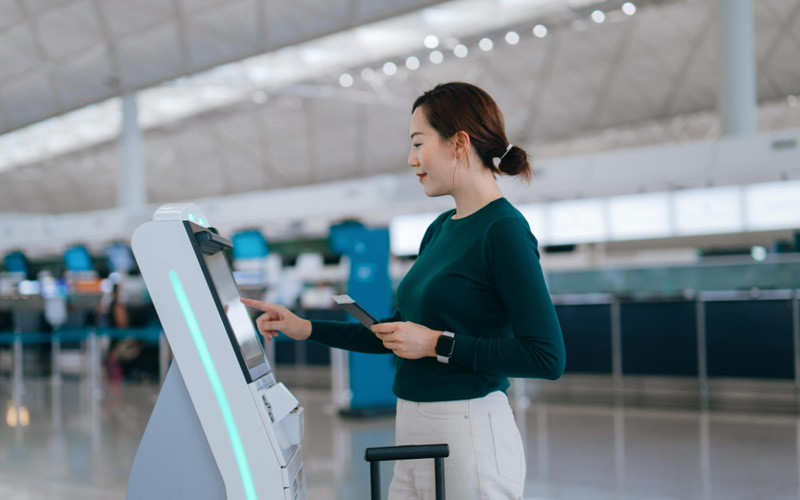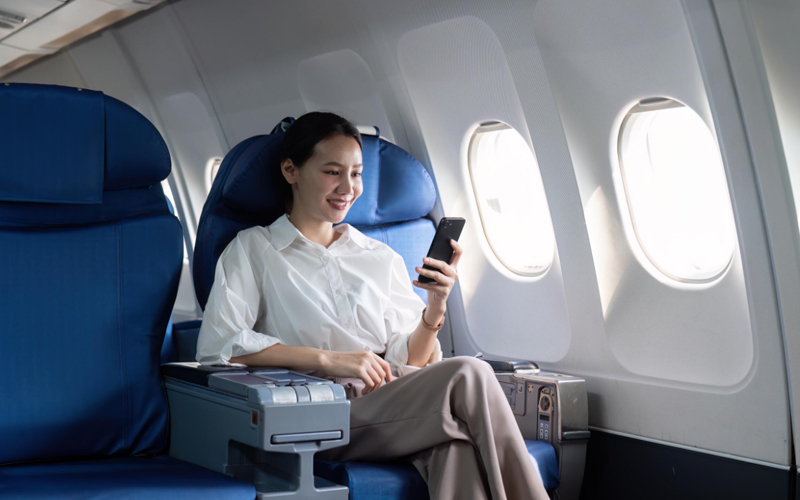Travel and hospitality businesses are booming worldwide. However, the demands on the bottom line of the businesses are growing longer than ever before. Among the most important entities making the demands are primarily the guests.
The modern hotel guest is well-travelled, suave and sophisticated. With the furthest corners of the globe being covered by technology, guests are exposed to the latest modern conveniences and expect the best when they pay for travel and hospitality.
Additionally, with leaders in the space upping their game in providing superior guest experiences, jaded guests expect a similar degree of sophistication wherever they travel. Whether it is a luxury ‘native dwelling’, the Kalahari offering the best modcons, or providing the freshest nigiri sushi in sweltering Chennai, it is the expected norm today. The same is true for facilitating Wi-Fi-enabled business conferences high up in the sky.
When it comes to air travellers, flight delays and cancellations, indifferent customer service, and a lack of options can turn a long-awaited holiday into a nightmare, and lead to many dissatisfied reviews online.
How is a hospitality provider to cope? Obviously, superior guest experiences form the crux of any return on investment in hospitality, and outsourcing many services, particularly technology-focused ones, can be a good stratagem towards reaping the benefits.
Here are the different ways hospitality businesses can optimise guest experiences with hospitality outsourcing:
- opt for technology-enabled outsourcing partners: Business Process Outsourcing (BPO) providers who leverage the latest technology, including Artificial Intelligence (AI), Customer Relationship Management (CRM) systems, and analytics dashboards can provide businesses with smooth, unobtrusive methods to monitor guest interactions, track requests, and deliver data-backed service improvement recommendations. When it comes to companies in the aviation sector, outsourced Maintenance, Repair and Operation (MRO) services can help business profits soar higher.
- offer multichannel communication support: Businesses can implement outsourced call centers and support platforms that offer 24/7 service across phone, email, chat, and social media, often in multiple languages. This ensures consistent guest care, particularly in the language they are accustomed to. This can be a crucial differentiator when it comes to helping travel-weary customers encountering delays or cancellations.
- employ flexible staffing models: Businesses must use outsourced temporary and permanent staffing to scale up their staff during peak seasons (such as weddings or holidays), and scale down during slow periods for operational agility and service consistency. The right staff-to-guest ratio can do wonders for customer satisfaction.
- consider back-office outsourcing: Hospitality leaders can free up their on-site teams by outsourcing billing, reservations, loyalty programs, and reporting to dedicated providers, thereby reducing errors and allowing their employees to focus on guest service.
- streamline facility management & housekeeping by outsourcing: Hoteliers can entrust cleaning and maintenance to specialised companies for consistent quality and proactive upkeep. Many such providers often use automated systems to augment human cleaning, to provide superior service.
Other, emerging ways to enhance guest experiences include using leading-edge technology such as generative AI (GenAI) to create seamless travel experiences by streamlining traveller journeys across countries and using a variety of transportation, hotel and aviation services.
However, it’s never a matter of ‘outsource and be done’. Vendor management is an ongoing process, particularly when guest-facing operations are outsourced. Here are some important ways hospitality enterprises can ensure their outsourced operations are performing optimally:
- invest in brand-centric training: It’s important that outsourced staff be trained in the brand’s particular standards and standard operating procedures using job shadowing, style guides, and coaching so they mirror the enterprise’s brand voice and standards at every touchpoint.
- place prime importance on data security and compliance: Outsourcing partners should follow strict data governance standards and protocols, including GDPR, ISO, encrypted communication, and role-based access to protect guest data.
- ensure communication and collaborative oversight happen: Businesses must treat outsourcing partners on par with their internal teams. Frequent meetings and updates, regular report reviews, and shared improvement goals must be the norm rather than the exception, thereby ensuring seamless alignment and consistent service.
- perform guest experience audits using AI: Hospitality providers can leverage mystery shoppers and perform AI-driven feedback analysis to regularly identify pain points and optimise their processes. This allows for quick responses to service gaps and evolving guest expectations.
- define clear metrics of success: Set specific expectations with outsourcing vendors with key performance indicators (KPIs) and Service Level Agreements (SLAs). This could include measuring and sharing parameters such as CSAT (Customer Satisfaction), NPS (Net Promoter Score), booking accuracy, and issue resolution times. This provides a data-backed method to maintain accountability and quality.
how Infosys can help
Infosys offers digital transformation services and solutions to travel and hospitality businesses, with a goal towards superior guest experiences. Infosys helps enterprises in the sector to decode the ‘passenger genome’ and supports their endeavours to offer personalised guest services. Whether it is a question of sequencing gene blocks for better traveller engagement, collaborating with partners for ancillary services, or improving asset management to ensure timely availability, Infosys can help.
FAQ
A superior guest experience drives ROI by increasing the Customer Lifetime Value (CLV) and reducing the cost of acquisition. Satisfied guests are more likely to book directly, bypassing high-commission Online Travel Agencies (OTAs), and become brand advocates who generate high-value organic referrals. By leveraging specialized travel and hospitality services, brands can personalize the guest journey, leading to higher RevPAR (Revenue Per Available Room) through premium pricing and upsell opportunities.
Hyper-personalization uses data analytics to anticipate guest needs—such as preferred room temperature, dietary restrictions, or past activity choices—before they even ask. This level of attentiveness increases secondary spend on ancillary services like spa treatments or curated dining experiences. When a guest feels "known," their price sensitivity decreases, allowing hospitality brands to maintain healthier margins even in competitive markets.
The key is to use automation for frictionless transactional tasks—like mobile check-ins, digital keys, and AI-driven concierge bots—so that staff can focus on high-emotion, high-value interactions. This "high-tech, high-touch" model ensures that guest issues are resolved instantly while maintaining the warmth and empathy that define luxury hospitality. Efficient automation reduces operational bottlenecks, which is a primary driver of negative guest reviews.
Proactive social listening allows brands to intercept and resolve guest complaints in real-time before they escalate into permanent negative reviews on platforms like TripAdvisor or Google. Since a one-star increase in rating can lead to a 5–9% increase in revenue, the ROI is immediate. Furthermore, analyzing guest sentiment helps brands identify systemic service gaps, allowing for data-driven operational improvements that prevent future churn.








